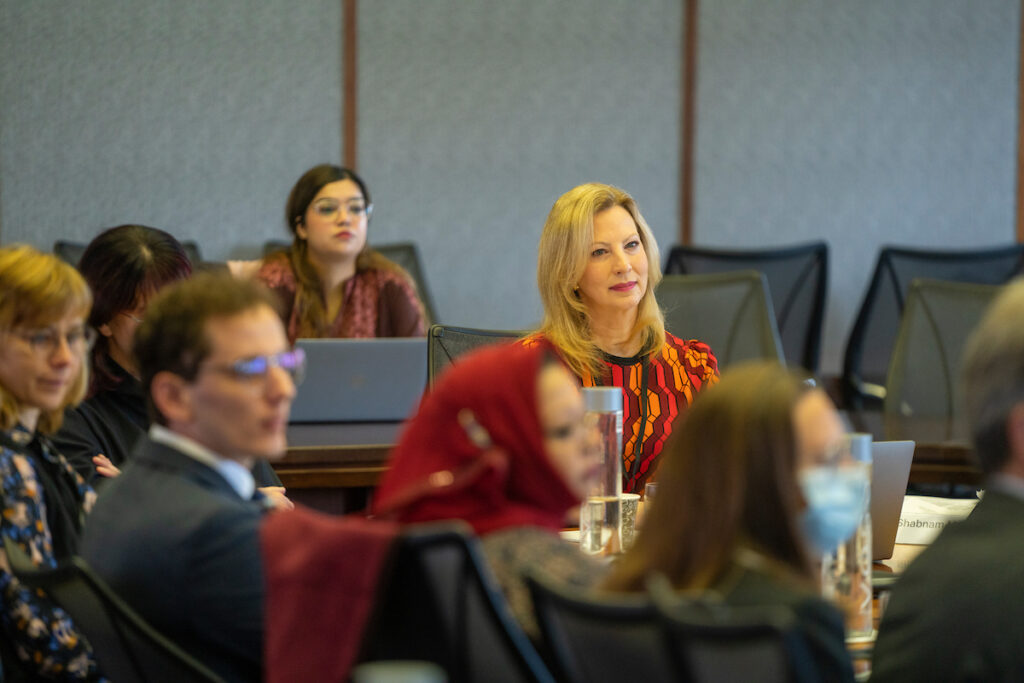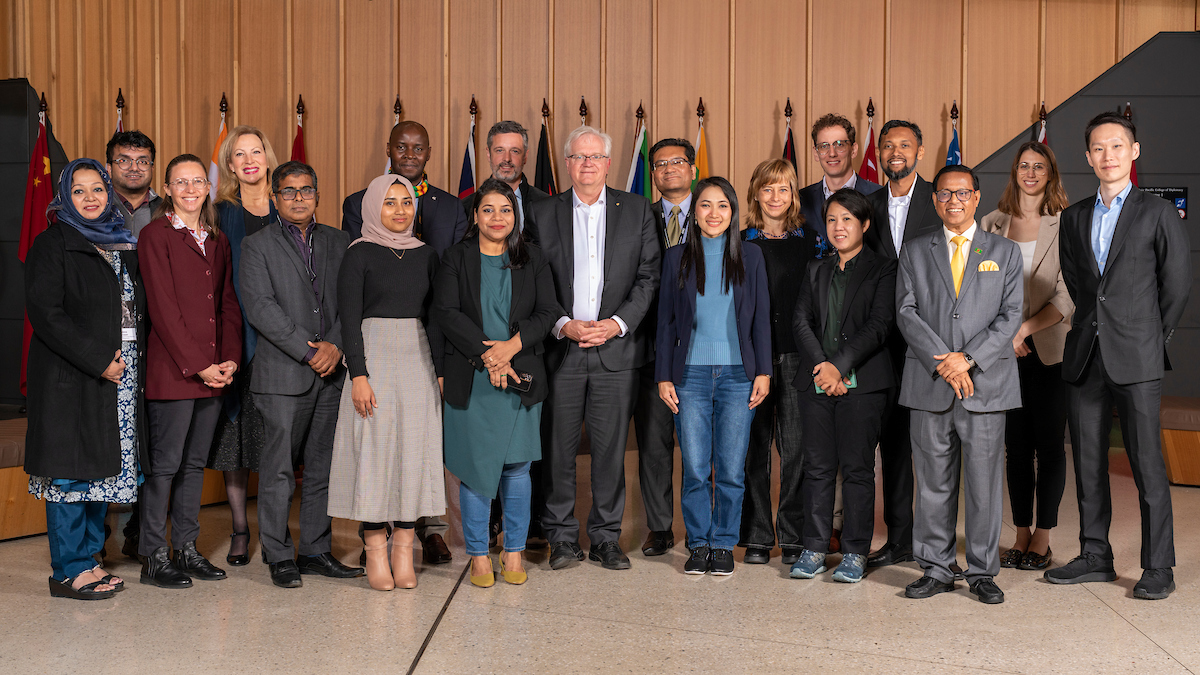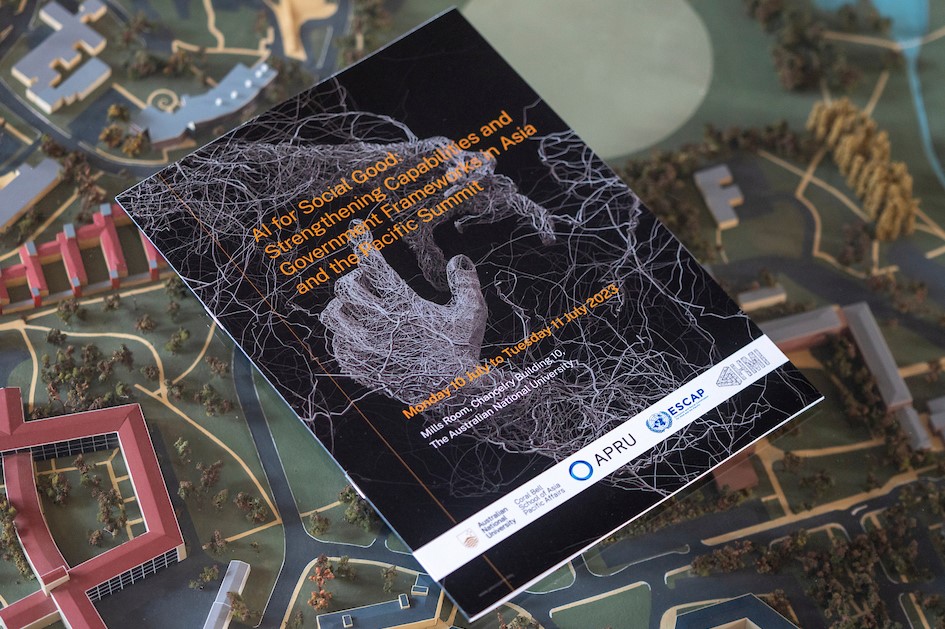Photos by The Australian National University
The AI for Social Good Summit convened at The Australian National University in Canberra from July 9 to 11 this year, provided experts from academia and public agencies the opportunity to discuss results and next steps of four policy-oriented research papers on AI capabilities to address social issues with focus on Southeast Asia.
The summit was organized to exchange outcomes from four projects of the “AI for Social Good— Strengthening Capabilities and Governance Frameworks” (AI4SG) collaboration, which was jointly established by the Association for Pacific Rim Universities (APRU), the United Nations Economic and Social Commission for Asia and the Pacific (UN ESCAP) and Google.org in 2021.
Over the past two years, meetings and workshops have been held with government agencies and local experts in Thailand and Bangladesh.
In Thailand, two teams of academics from the National University of Singapore (NUS) and The Australian National University (ANU), worked with the Office of National Higher Education, Science Research and Innovation Policy to support the Thai Government in building AI capabilities regarding medicine and healthcare, and poverty alleviation. Two agencies — the Office of National Higher Education Science Research and Innovation Policy Council (NXPO) and National Electronics and Computer Technology Center (NECTEC) — have collaborated each team respectively.
In collaboration with the Bangladesh Aspire to Innovate (a2i) Programme of the ICT Division and Cabinet Division of Bangladesh, two other teams from NUS, Korea Advanced Institute of Science and Technology (KAIST) and the University of Hawai’i at Mānoa conducted research to support the Bangladeshi Government in developing of AI policy frameworks and building AI capabilities in pregnancy monitoring.

Professor Toni Erskine, Director of the Coral Bell School of Asia Pacific Affairs at ANU, guided the conception of the research questions in collaboration with the government partners.
“The process of working closely with government agencies from the outset to discuss these problems and co-design research questions makes this project unique and genuinely collaborative,” Professor Erskine said.

During the summit in Canberra, the papers of four teams was presented: 1) Responsible Data Sharing, AI Innovation and Sandbox Development: Recommendations for Digital Health Governance in Thailand, 2) Raising Awareness of the Importance of Data Sharing and Exchange to Advance Poverty Alleviation in Thailand, 3) Mobilizing AI for Maternal Health in Bangladesh, and 4) AI in Pregnancy Monitoring: Technical Challenges for Bangladesh.
With insights exchanged, the participants drew consensus to further AI capabilities in governance: local context and needs are key drivers for high impact research collaborations, while trust and common goals are main success factors for multi-stakeholder partnerships.
Following the summit, an impact assessment over the four projects will be conducted, while a set of country case studies is under the development.
Here is the AI for Social Good project webpage.
Here is the detailed AI for Social Good Summit 2023 Program:


